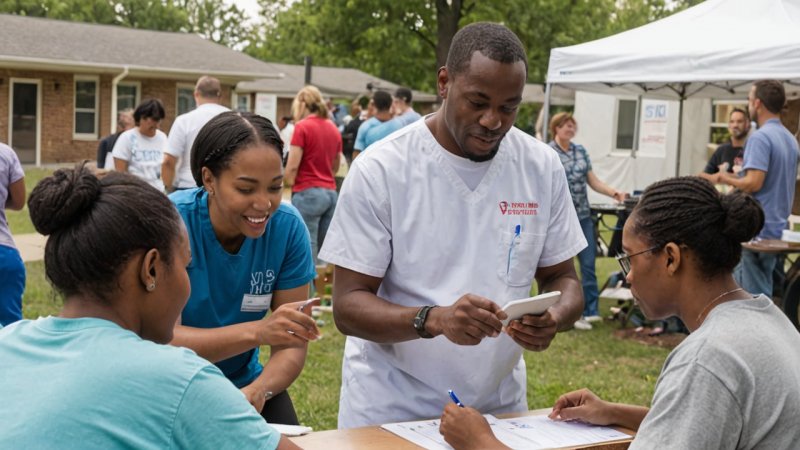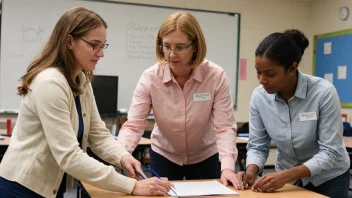In an age where global health issues are more pressing than ever, the role of volunteers in public health has garnered increasing attention. To explore this vital topic, we sat down for a fictional interview with Dr. Elizabeth Greenfield, a renowned public health expert and advocate for volunteerism. While Dr. Greenfield is a fictional character, her insights reflect the experiences and knowledge of many professionals in the field.
Understanding the Role of Volunteers in Public Health
Interviewer: Dr. Greenfield, thank you for joining us today. Can you start by explaining the importance of volunteers in public health initiatives?
Dr. Greenfield: Absolutely! Volunteers play a crucial role in public health efforts. They bring diverse skills, local knowledge, and immense passion to the table. In many underserved areas, volunteers help fill gaps where healthcare professionals are scarce, particularly during health crises like pandemics or natural disasters. Their contributions range from direct patient care to education and outreach, making a significant difference in communities.
Types of Volunteer Opportunities
Interviewer: What types of volunteer opportunities exist in public health?
Dr. Greenfield: There are numerous opportunities for volunteers in public health. Some examples include:
- Community Health Education: Volunteers can lead workshops and seminars to educate the public on health issues such as nutrition, disease prevention, and mental health.
- Health Screening Events: Volunteers can assist in organizing and running health fairs that offer screenings for various conditions, such as diabetes and hypertension.
- Disaster Response: During emergencies, volunteers can provide critical support, from logistics to direct patient care.
- Research Assistance: Volunteers with research backgrounds can help with data collection and analysis, contributing to important public health studies.
Skills and Training
Interviewer: What skills or training do volunteers need to effectively contribute to public health?
Dr. Greenfield: While some roles may require specific qualifications, many opportunities are accessible to individuals without formal training. Essential skills include:
- Communication: Being able to convey health information clearly is vital.
- Empathy: Understanding the challenges faced by communities is crucial for effective outreach.
- Flexibility: Public health situations can change rapidly, so volunteers must adapt to new circumstances.
Many organizations offer training programs to equip volunteers with the necessary skills, such as first aid certification or public speaking workshops.
Challenges Faced by Volunteers
Interviewer: What challenges do volunteers typically encounter in public health work?
Dr. Greenfield: Volunteers often face several challenges, including:
- Resource Limitations: Many public health initiatives operate on tight budgets, which can restrict training and support for volunteers.
- Cultural Barriers: Volunteers may encounter communities with different beliefs and practices, necessitating cultural sensitivity and awareness.
- Emotional Strain: Working in public health can be emotionally taxing, especially in crisis situations. Volunteers need to practice self-care and seek support when needed.
The Impact of Volunteerism on Public Health
Interviewer: Can you share examples of how volunteer efforts have made a tangible impact on public health?
Dr. Greenfield: Certainly! One notable example is during the Ebola outbreak in West Africa, where thousands of volunteers helped with awareness campaigns, contact tracing, and medical support. Their efforts were instrumental in managing the outbreak and educating communities about prevention measures. Additionally, local volunteer organizations have successfully improved vaccination rates and maternal health outcomes by engaging community members in health education initiatives.
Getting Involved
Interviewer: How can someone get involved in volunteer opportunities within public health?
Dr. Greenfield: Getting involved is relatively straightforward. Interested individuals can start by exploring local non-profits, community health organizations, or international NGOs focusing on public health. Websites like VolunteerMatch and Idealist can help connect volunteers with opportunities. Attending community meetings or health fairs can also provide insight into where help is needed.
The Future of Volunteerism in Public Health
Interviewer: What do you envision for the future of volunteerism in public health?
Dr. Greenfield: I believe we will see a growing recognition of the value that volunteers bring to public health. As global challenges evolve, the need for dedicated individuals who can mobilize quickly will be paramount. We may also witness an increase in virtual volunteering options, allowing more people to contribute from anywhere in the world. Ultimately, fostering a culture of volunteerism can enhance community resilience and lead to healthier populations.






